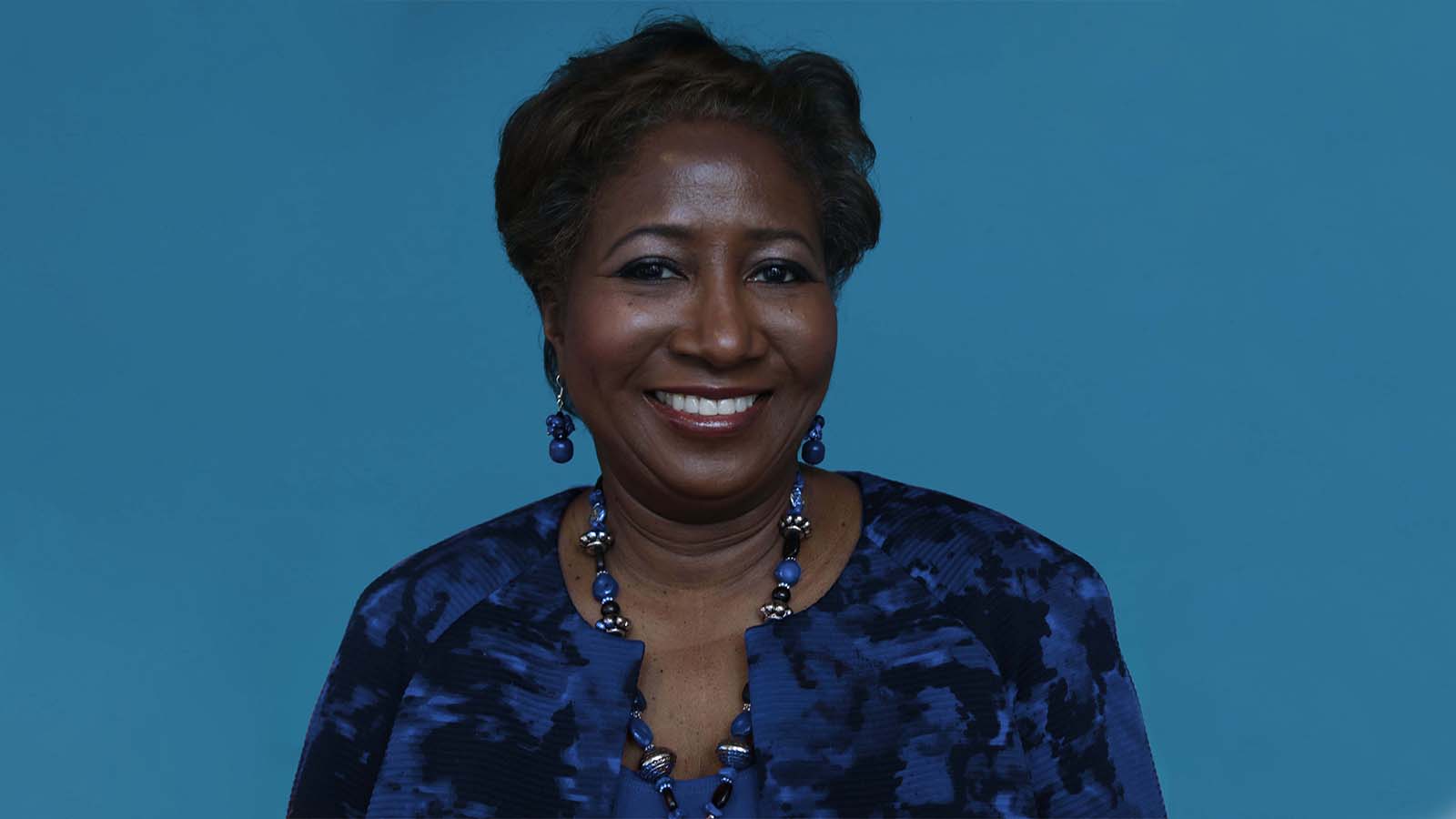In 1988, Sandra K. Johnson became the first black woman to earn a Ph.D. in electrical engineering from Rice, and it almost didn’t happen.
“That first day on campus, a professor in the department told me: ‘I don’t think you’re going to make it.’ I didn’t say anything but inside I was thinking, ‘You don’t know who you’re talking to,’” said Johnson, founder, CEO and CTO of Global Mobile Finance, Inc., a startup company based in North Carolina.
As part of Rice’s observance of Black History Month, Johnson will tell her story at 4 p.m. on Feb. 23 in Shell Auditorium in Janice and Robert McNair Hall. Her talk is sponsored by the Department of Electrical and Computer Engineering and the Office of Multicultural Affairs.
Johnson was born in Japan and her three siblings were born in Lake Charles, La., where the family lived. Their father, at age 29, having served for a decade in the U.S. Air Force, was killed by a drunken driver when Johnson was two years old. “My mother was a housewife. We had an extended family – aunts, uncles, cousins – and that was a big help,” she said.
Her interest in math and science came early. She spent a summer at Southern University, a historically black school in Baton Rouge, at their engineering institute. That lead to a scholarship to attend Southern, where she earned her B.S. in electrical engineering in 1982.
“I knew from the start,” she said, “that I wanted to study electrical engineering. There was never any question. There was just something so fascinating about so much energy in a wire.”
From Southern she went to Stanford, where she continued in electrical engineering and earned her master’s degree in 1984. She found herself shunned by many white classmates, not invited to join their research teams. With a student from Lebanon and other “fellow outcast classmates,” Johnson said, “We made our own supportive environment. It turned out we were the best students in the class.”
Johnson was contacted by Fayé Briggs, a Nigerian-born professor then on the electrical engineering faculty at Rice who now is president and CEO of Niminq, Inc, a Data Center and Data Analytics company. She enrolled in the doctoral program at Rice and Briggs became her adviser.
Another supportive faculty member at Rice was the late C. Sidney Burrus, longtime professor of electrical and computer engineering, department chair and dean of engineering.
“There was a time when I sort of hit a wall. I wasn’t sure if I could go on. I was burning out. Dr. Briggs encouraged me to take some time off to recover. He said he had to do that at one point. That’s when I went to Dr. Burrus and asked for his advice, as well as the process for leaving and coming back. I took his advice and came back refreshed,” Johnson said.
Her thesis was titled “The Effects of Cache Coherence on the Performance of Parallel PDE Algorithms in Multiprocessor Systems.” On the day she successfully defended it, Johnson ran into the professor who had warned her four years earlier that she wouldn’t make. “In my head, I told myself, ‘Mission accomplished,’” Johnson said.
From Rice, Johnson went directly to IBM T.J. Watson Research Center, working as a researcher. She remained with the company for more than 25 years in various capacities. She was part of the team that developed the prototype for IBM’s Deep Blue chess machine.
In 2007, Johnson traveled to Africa for the first time. That trip included a visit to the Elmina Slave Castle in Ghana.
“I knew I was a descendant of the people captured or of those who experienced similar atrocities elsewhere,” she said. “I went through the door of no return and stood on a ledge overlooking the Atlantic Ocean. I knew then I wanted to use my skills and experience to collaborate with African people and leverage technology to raise their living standard.”
In 2011, she became IBM’s business development executive for the Middle East and Africa, eventually becoming IBM Central’s CTO for East and West Africa. She lived in Nairobi, Kenya, and eventually visited 22 African countries. Johnson retired from IBM in 2014 and became CEO of SKJ Visioneering, the IT consulting firm that eventually became Global Mobile Finance, Inc.
Johnson notes that more than 200 million people living in the west send money home to more than 800 million family members living in emerging countries. The global market totals some $550 billion.
“I created Global Mobile Finance,” she said, “which has developed geeRemit, a relationship-driven remittance mobile app for Africa. It leverages patent-pending lightweight personalized analytics – LPAs -- to trigger multiple recurring transfers. That enables customers to send funds on special occasions and create financial accounts to save for the future education and entrepreneurship of the recipients.”
Johnson has been issued 37 patents, with another 13 pending., and was named an IEEE (Institute of Electrical and Electronics Engineers) fellow in 2006. Here is the essential message Johnson says she wishes to convey to students of any color:
“Know who you are. You are the captain of your ship. Make sure you steer the ship yourself in the direction you want to go.”

